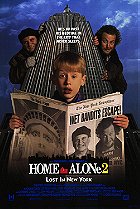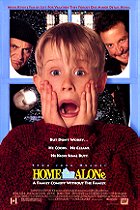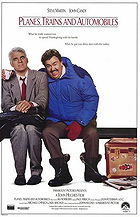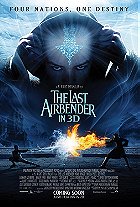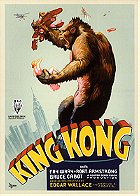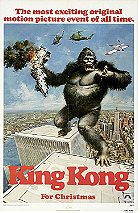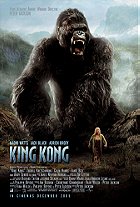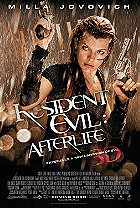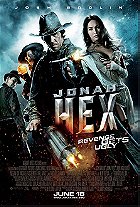Home Alone 3 carries all the hallmarks of an unnecessary sequel. After all, it is the third instalment in a series of declining quality (though 1992's Home Alone 2: Lost in New York is still pretty good), neither Chris Columbus nor John Williams chose to return, and the film features a whole new cast of characters because original star Macaulay Culkin retired from acting in the mid-1990s. Plus, the premise does not lend itself to repeat uses. Legendary screenwriter and filmmaker John Hughes returns here after scripting the first two films, though in the interim since Home Alone 2, the filmmaker recycled the same types of villains and situations in other family films (101 Dalmatians, Baby's Day Out). Without the heart or dramatic gravitas of the first two pictures, and with a new director in Raja Gosnell (making his directorial debut), Home Alone 3 is a subpar, at times boring sequel that feels like a slapdash cash grab.

This time around, Culkin's Kevin McCallister has been replaced by the young Alex Pruitt (Alex D. Linz). Alex is not home alone because his family go on a trip and forget about him - instead, he has the chicken pox, so he can't go to school. His dad is away on business and his mum has to run errands, so Alex is by himself during the day for the most part. Through a series of barely acceptable contrivances and coincidences, a top-secret U.S. Air Force microchip comes into Alex's possession. A gang of international terrorists are seeking this chip, and begin searching the neighbourhood for it. Alex witnesses a number of break-ins, but the police are not astute enough to find the crooks after responding to Alex's calls, which are subsequently dismissed as pranks. With nobody able to help as the bad guys start homing in on him, Alex decides to deal with the problem himself. In typical Kevin McCallister tradition, Alex booby traps his house with all sorts of devices designed to humiliate, harm and incapacitate the villains.
Credit where credit is due, Hughes at least learned his lesson after Home Alone 2 and thus penned a script with a few new ideas. Home Alone 3 is, thankfully, not a completely shameful rehash of every plot point from the original Home Alone, though there's nothing too fresh here. The problem, however, is that the narrative is extremely implausible with all of the changes. The idea of four international terrorists against one little 8-year-old kid is absurd. While the concept of a couple of burglars against one child is at least mildly believable, terrorists should be more wise and cunning. But alas, the villains here are even dumber than Harry and Marv. For crying out loud, these incompetent idiots are not even able to retrieve a remote-controlled car. And let's keep in mind that remote-controlled cars cannot possibly outrun a fully grown man... Added to this, it's absurd that Alex is so smart. As a result, it's difficult to feel worried for Alex at any point. In the first two Home Alone movies, one could feel worried for Kevin at times when he made mistakes. Yet, Alex is completely untouchable here, and he's far too smart for his age.

The level of violence within Home Alone 3 is extreme. In fact, like in prior Home Alone films, many of Alex's traps are nasty enough to kill or induce very serious injuries. But because this is a family film, no one dies or is even injured, despite being electrocuted and getting hit on the head by a barbell. Still, at least director Raja Gosnell (editor of the first two Home Alone films) handled the material well enough. From time to time, there are a few mildly entertaining moments, and the craftsmanship makes it an easy watch. With that said, though, the snowflakes do not look remotely believable. The production values are so shoddy, in fact, that a shining sun is visible during scenes set during a near-blizzard. It's a Wonderful Life featured real-looking snow despite being made in the 1940s, and it is therefore baffling that a '90s production with a larger budget and more advanced technology could look so fake.
Alex D. Linz played the main role here of Alex Pruitt, and the only thing he has going for him is terminal cuteness. He's not half as interesting, engaging, or believable as Macaulay Culkin. Meanwhile, the villains are much less engaging than Joe Pesci and Daniel Stern. The group of performers who played the terrorists are serviceable enough, but are nonetheless comparatively subpar. Also in the cast is a youthful Scarlett Johansson as Alex's sister, who would have been about 12 or 13 during filming. Literally, the only cast member here who earns a few laughs is the parrot. That's right - a bird was given the funniest lines in the script, and delivered the most convincing performance.

Home Alone 3 demonstrates the dire consequences of what happens when desperate studio executives endeavour to squeeze a few more drops out of a dying cash cow. This sequel substitutes the drama of its predecessors with scenes of embarrassing schmaltz, such as the trademark "something funny happens, so everyone in the room laughs in a cute fashion to signal that everything is okay and everyone is closer" moment. I guess one could assume that the kids will enjoy this movie, even if it's heavily flawed. Heck, this reviewer enjoyed it tremendously as a youngster. Kids don't really care if the same thing is done over and over - the Home Alone movies are about kids getting revenge against big mean grown-ups in the context of a wish fulfilment fantasy. Unfortunately, while kids will enjoy it, there's very little here that will appeal to adults.
4.2/10
 Login
Login
 Home
Home 183 Lists
183 Lists 1674 Reviews
1674 Reviews Collections
Collections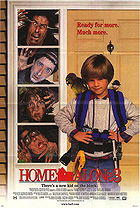
 0 comments,
0 comments, 